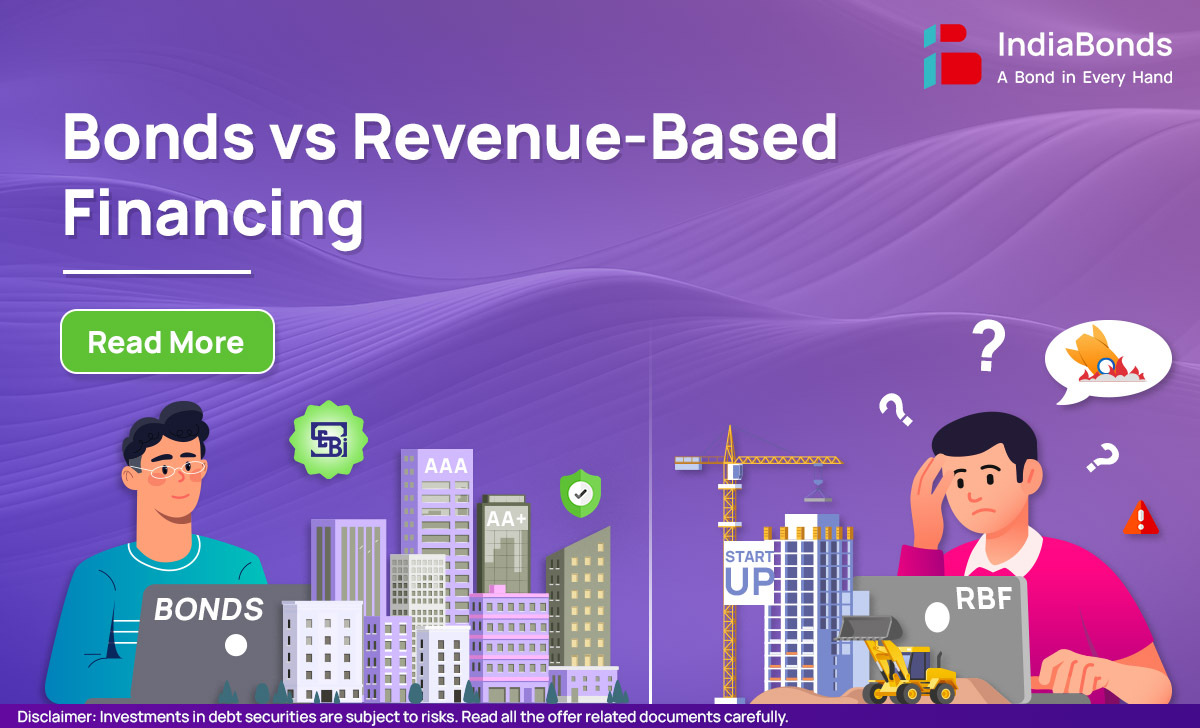Bonds vs Revenue-Based Financing

Do you understand the distinction between a retail investor and a High-Net worth Investor (HNI)? I’m not referring to the SEBI definition, but rather the difference in their investing mindset. An HNI doesn’t pursue high returns; instead, they remain unfazed by market volatility, stay composed, diversify their investments adeptly and think long-term, unlike our average Indian retail investor who easily succumbs to the allure of quick gains. Therefore, it is simple to identify a retail investor; most of them have just one question when it comes to investing, a question that is dreaded by most fund managers – ‘kitna milega?’
Until retail investors shift away from this ‘kitna milega’ mindset, they are likely to remain in that category. Interestingly, online platforms that have emerged in recent years target these very concerns of retail investors and are trying to succeed by offering structured financial products. All it takes is to incorporate keywords like “risk-free,” “fixed-income” and “up to 18% p.a.” in their ad copy and voila! Your dish is ready and remarkably, these products also sell like hotcakes!
In the past, many HNIs have burnt their fingers with these alternative financial products. That’s precisely why these products are now being democratized and sold to retail investors. However, retail investors must move beyond the allure of high returns. They need to conduct thorough due diligence, assess the fundamentals, confirm the regulatory status of the asset and if it’s a structured product, comprehend the underlying assets and business fundamentals. Retail investors must abandon their short-sighted perspective on investing and adopt a more comprehensive approach.
Revenue-based financing also known as performance-based funding is one of the few alternative investment options available in India whereas, bonds are a traditional fixed-income asset class that is known for safety and predictability. In this article, we’ll delve into bonds vs revenue based financing, highlighting their distinctions and help retail investors make an informed choice when it comes to investing in the right asset class.
What is Revenue-Based Financing?
Revenue-Based Financing (RBF) is a contemporary financing model where investors provide capital to businesses in exchange for a percentage of the company’s future revenue. This model aligns the interests of investors and entrepreneurs, as the investor’s returns are directly linked to the company’s performance. RBF offers a flexible repayment structure, making it an attractive option for startups and growing businesses.
Bonds vs Revenue-based financing differences:
| Criteria | Bonds | Revenue-Based Financing |
| Returns | Fixed interest payments | Variable returns based on company revenue |
| Risk | Relatively lower for corporate bonds and non-existent for government bonds | Higher, as returns depend on company performance |
| Repayment | Fixed schedule | Flexible, tied to revenue |
| Ownership | Creditor; No ownership stake in the company | Hybrid type of funding No ownership stake in the company |
| Use of Funds | Determined by the issuer | Often used for business operations or expansion |
| Regulation | SEBI and RBI | None |
Why Bonds over RBF?
Investors might prefer bonds over Revenue-Based Financing for several reasons:
Stability: Bonds offer predictable returns, making them a preferred choice for investors seeking stable income streams. RBF, on the other hand, is linked to the company’s revenue, which can fluctuate significantly, depending upon the business operations leading to variable returns.
Lower Risk: Government bonds or AAA-rated bonds are considered low-risk investments. They provide a safer haven for investors compared to the relatively higher risk associated with RBF, where returns are contingent on the company’s financial performance.
Diversification: Bonds allow investors to diversify their portfolios easily. By investing in bonds from different issuers, investors can spread their risk. RBF, being specific to individual companies, might not offer the same level of diversification.
Regulatory: A diverse range of investors, including institutional investors, small corporates, HNIs and retail investors, etc. participate in the debt market. Well-established credit rating agencies assess the credit quality of the papers. Additionally, the entire debt market ecosystem falls under the purview of regulatory bodies such as SEBI and RBI. However, these elements are absent in the case of RBF making them less attractive in terms of safety when it comes to investing in bonds.
Conclusion
Revenue-Based Financing (RBF) emerges as an optimal financing solution for early-stage startups due to its cost-effectiveness compared to equity. With its flexibility, non-dilutive nature and swift funding, RBF stands out. While it might be an attractive choice for founders, it may not appeal to investors seeking stable and punctual returns. The decision between bonds and Revenue-Based Financing is intricate and relies on an investor’s risk tolerance, financial aspirations and investment preferences. Bonds assure stability and lower risk, whereas RBF presents the potential for substantial returns tied to a company’s success. Given that revenue-based financing is a sophisticated product, investors must carefully evaluate their investment strategies, considering factors such as risk tolerance and diversification requirements, in order to make an informed choice. Understanding the disparities between these investment avenues empowers investors to align their decisions with their financial goals. Ultimately, whether you are a HNI or a retail investor, the choice hinges on your specific financial objectives.
FAQs
Q. What is Revenue-Based Financing (RBF)?
A. RBF is a financing method where a company receives capital from an investor in exchange for a percentage of its future revenue.
Q. Does RBF involve giving away equity?
A. No, RBF does not involve giving away ownership stakes in the company. Investors receive a share of the revenue, not ownership.
Disclaimer: Investments in debt securities/ municipal debt securities/ securitised debt instruments are subject to risks including delay and/ or default in payment. Read all the offer related documents carefully.

















































